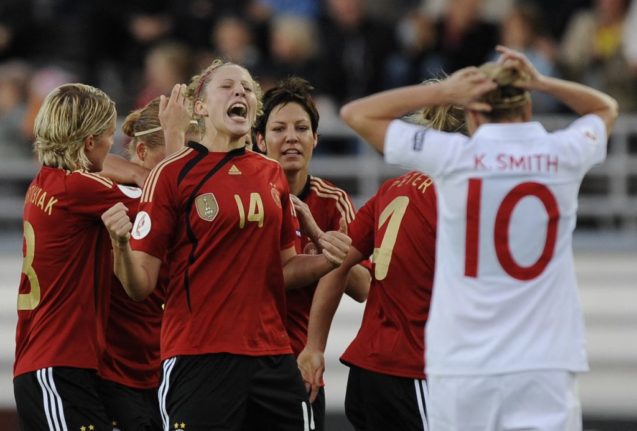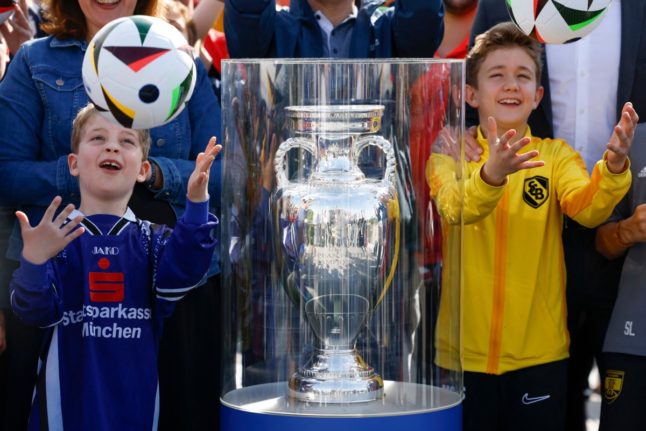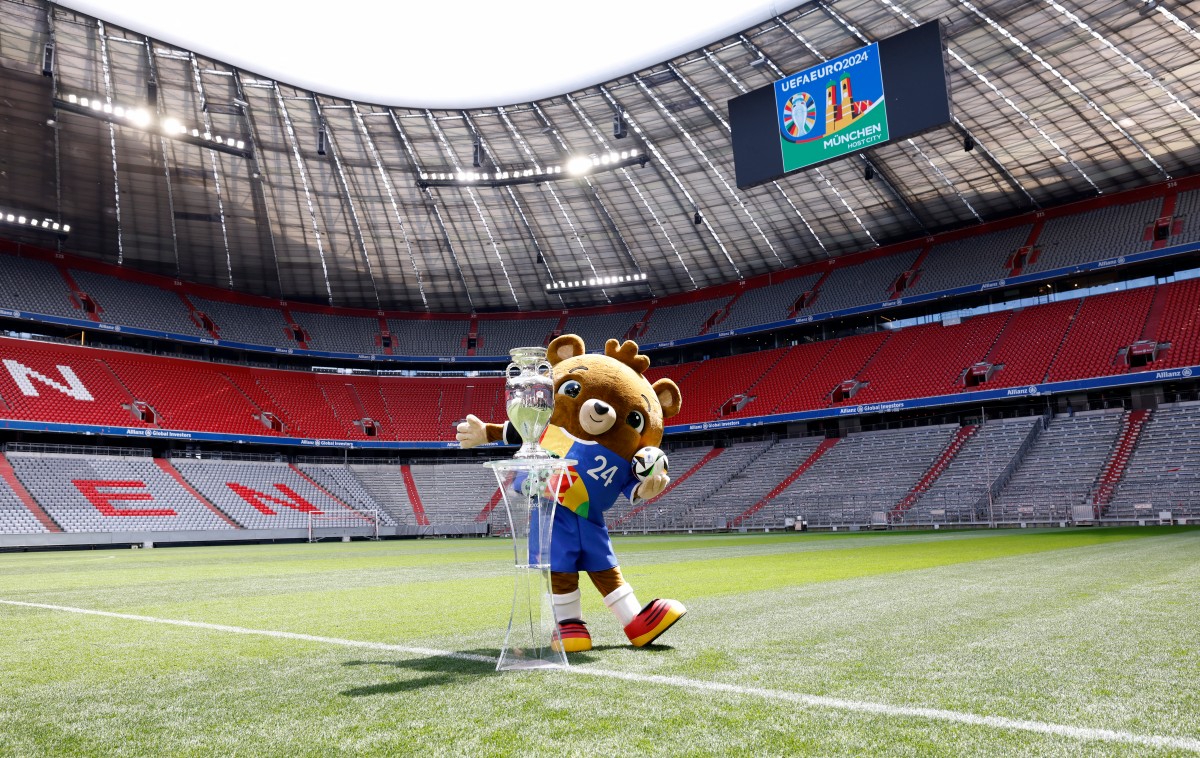England have never won a major tournament in the women’s game, in stark contrast to Germany’s record of winning eight of the previous 12 women’s European Championships.
But the host nation is reaching fever pitch with senior politicians, royalty, celebrities and famous faces from the men’s game wishing Sarina Wiegman’s women well.
“There is more pressure on England tomorrow than us,” said Voss-Tecklenburg at her pre-match press conference.
“We’ve dreamt of this, a final against England at Wembley. I don’t know if there is a bigger moment for our players. We want to stay present and embrace everything.”
READ ALSO: Scholz to cheer on Germany at Euro 2022 final in London
Germany have historically dominated the rivalry between the nations in the women’s game, losing just two of 27 meetings.
But the Lionesses won the last clash between the two in the Arnold Clark Cup in February.
That was against a much-weakened Germany side due to a coronavirus outbreak and Voss-Tecklenburg will be without a key player for the final in Klara Buhl due to Covid.
The Bayern Munich winger missed Germany’s 2-1 semi-final win over France and has not tested negative in time to rejoin the squad.
The game on Sunday will be shown at several ‘public viewings’ across Germany, including in beer gardens such as BRLO in Berlin.
READ ALSO:




 Please whitelist us to continue reading.
Please whitelist us to continue reading.
Member comments